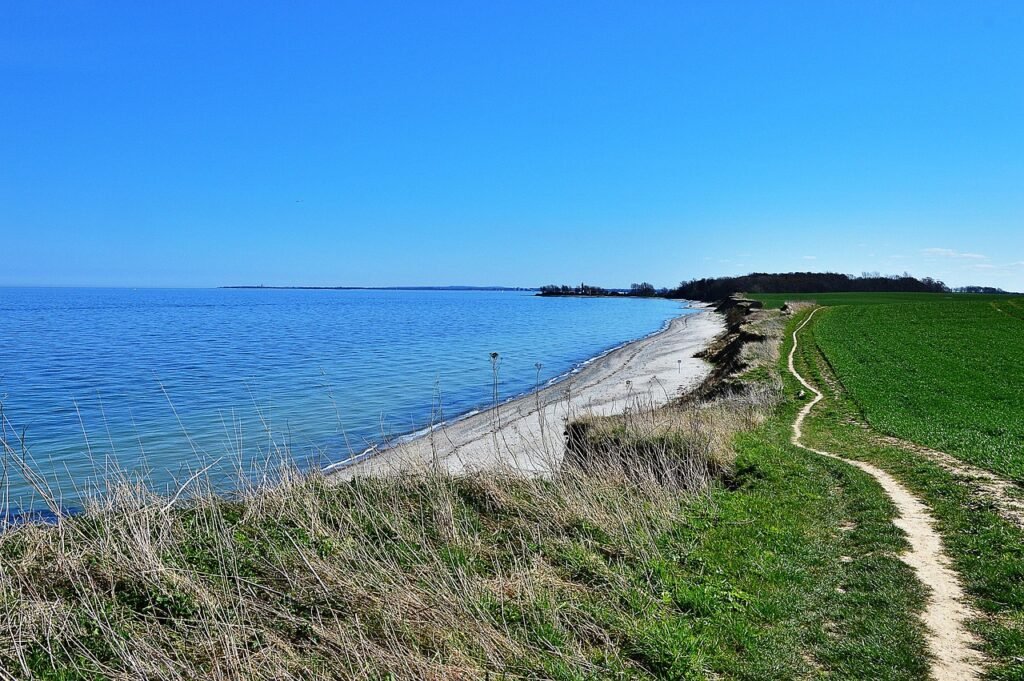Sun, sand, and serenity: these are the words that often come to mind when we think of beaches. More than just picturesque landscapes, beaches offer a unique blend of relaxation, recreation, and natural beauty. Whether you’re an avid surfer, a sunbather seeking a golden tan, or a family looking for a memorable vacation spot, beaches hold an irresistible allure. This guide explores the multifaceted appeal of beaches, covering everything from their diverse ecosystems to the best ways to enjoy them responsibly.
The Allure of Beaches: Why We Love Them
Beaches are more than just pretty places; they’re essential ecosystems and vital recreation areas. The calming rhythm of the waves, the warmth of the sun, and the soft texture of the sand create a sensory experience that’s both relaxing and invigorating.
Psychological and Physical Benefits
- Stress Reduction: Studies have shown that being near the ocean can lower stress levels and improve mental well-being. The negative ions in sea air are believed to have a calming effect.
- Vitamin D Boost: Sunlight exposure (in moderation, of course) helps your body produce Vitamin D, essential for bone health and immune function.
- Exercise Opportunities: Beaches offer ample opportunities for physical activity, from swimming and surfing to beach volleyball and simply walking along the shoreline.
- Improved Sleep: The fresh air and physical activity associated with beach trips can contribute to better sleep quality.
Economic Importance
Beaches contribute significantly to local and national economies through tourism. Coastal communities thrive on the influx of visitors, generating revenue for businesses ranging from hotels and restaurants to surf shops and tour operators. For example, coastal tourism in the United States generates hundreds of billions of dollars in revenue annually.
Exploring Different Types of Beaches
Beaches aren’t all created equal. Their characteristics vary widely depending on geological factors, climate, and geographic location.
Sandy Beaches
These are the most common type of beach, characterized by soft, fine-grained sand. The sand typically originates from eroded rocks or marine organisms.
- Best for: Sunbathing, swimming, building sandcastles, and leisurely strolls.
- Example: South Beach, Miami, Florida, known for its wide, sandy shoreline and vibrant atmosphere.
Rocky Beaches
Rocky beaches are characterized by pebbles, stones, and larger rock formations. They often host unique intertidal ecosystems.
- Best for: Exploring tide pools, observing marine life, and enjoying dramatic coastal scenery.
- Example: Acadia National Park, Maine, features rugged rocky coastlines with stunning views.
Shell Beaches
These beaches are composed primarily of shells, often crushed or whole. They can be visually striking and offer unique collecting opportunities (check local regulations regarding shell collection).
- Best for: Beachcombing, shell collecting, and photography.
- Example: Shell Beach, Shark Bay, Western Australia, is comprised entirely of tiny white shells.
Volcanic Beaches
These beaches are formed from volcanic activity and are typically black or dark gray in color.
- Best for: Unique landscapes, geothermal activity (in some locations), and dramatic photo opportunities.
- Example: Punalu’u Black Sand Beach, Hawaii, known for its black sand and sea turtle sightings.
Beach Activities for Everyone
From adrenaline-pumping water sports to relaxing pastimes, beaches offer a diverse range of activities to suit all interests and ages.
Water Sports
- Surfing: Riding waves on a surfboard, a thrilling activity requiring skill and balance.
- Swimming: A classic beach activity, perfect for cooling off on a hot day. Always swim in designated areas with lifeguards present.
- Snorkeling and Scuba Diving: Exploring the underwater world, observing coral reefs, and encountering marine life.
- Kayaking and Paddleboarding: Paddling along the coastline, enjoying the scenery, and getting a workout.
- Windsurfing and Kiteboarding: Harnessing the power of the wind to glide across the water.
Relaxation and Recreation
- Sunbathing: Relaxing on the sand, soaking up the sun, and working on a tan (with appropriate sun protection).
- Beach Volleyball: A fun and competitive team sport played on the sand.
- Building Sandcastles: A creative activity for all ages.
- Beachcombing: Searching for shells, sea glass, and other treasures washed ashore.
- Picnicking: Enjoying a meal outdoors with a beautiful ocean view.
Safety Tips for Beach Activities
- Always swim in designated areas with lifeguards present.
- Be aware of rip currents and know how to escape them (swim parallel to the shore).
- Wear sunscreen, a hat, and sunglasses to protect yourself from the sun.
- Stay hydrated by drinking plenty of water.
- Be cautious of marine life, such as jellyfish and stingrays.
- Check the weather forecast before heading to the beach.
Protecting Our Beaches: Responsible Beach Etiquette
Beaches are fragile ecosystems that require our care and respect. Practicing responsible beach etiquette is crucial for preserving their beauty and health for future generations.
Reducing Pollution
- Pack out everything you pack in: Avoid leaving any trash behind, including food wrappers, plastic bottles, and cigarette butts.
- Participate in beach cleanups: Volunteer your time to help remove litter from the shoreline.
- Reduce your use of single-use plastics: Bring reusable water bottles, shopping bags, and food containers.
- Properly dispose of fishing line and other fishing gear: Discarded fishing line can entangle marine animals.
Protecting Wildlife
- Avoid disturbing nesting birds and other wildlife: Keep a respectful distance and do not approach or feed them.
- Respect designated conservation areas: These areas are often established to protect sensitive habitats and species.
- Leave seashells and other natural items where you find them: Removing shells can disrupt the ecosystem.
- Be mindful of your impact on sand dunes: Dunes are important for protecting coastlines from erosion.
Supporting Sustainable Tourism
- Choose eco-friendly accommodations and tour operators: Look for businesses that prioritize environmental sustainability.
- Support local businesses: Patronize restaurants and shops that source local products.
- Educate yourself about coastal conservation issues: Learn about the challenges facing beaches and how you can help.
- Respect local customs and traditions: Be mindful of the cultural practices of coastal communities.
Finding Your Perfect Beach: Considerations for Planning a Trip
Choosing the right beach depends on your individual preferences and priorities. Consider the following factors when planning your next beach vacation.
Location and Accessibility
- Proximity: How far are you willing to travel? Consider beaches within driving distance or those accessible by plane.
- Accessibility: Is the beach easily accessible by public transportation or car? Are there parking facilities available?
- Amenities: What amenities are important to you? Look for beaches with restrooms, showers, restaurants, and lifeguards.
Beach Conditions and Activities
- Water Temperature: What water temperature are you comfortable with? Tropical beaches offer warm water year-round, while other beaches may have cooler water temperatures.
- Wave Conditions: Are you looking for calm, gentle waves or challenging surf breaks?
- Activities: What activities do you want to participate in? Choose a beach that offers the activities you enjoy, such as surfing, swimming, snorkeling, or beach volleyball.
- Crowds: Do you prefer a secluded, quiet beach or a lively, bustling beach?
Budget and Time of Year
- Budget: How much are you willing to spend on your beach vacation? Consider the cost of transportation, accommodation, food, and activities.
- Time of Year: What time of year are you planning to travel? Be aware of seasonal weather patterns, such as hurricane season or monsoon season. Consider shoulder seasons for fewer crowds and more favorable prices.
Conclusion
Beaches offer a unique blend of relaxation, recreation, and natural beauty. From their diverse ecosystems to the myriad activities they provide, beaches hold an undeniable appeal. By understanding the different types of beaches, engaging in responsible beach etiquette, and carefully planning your trip, you can ensure a memorable and enjoyable beach experience. So pack your sunscreen, grab your towel, and head to the beach for a dose of sun, sand, and serenity.

